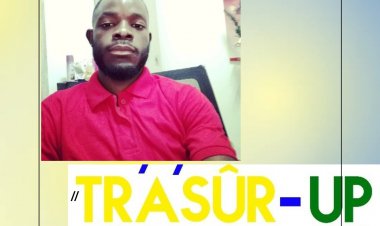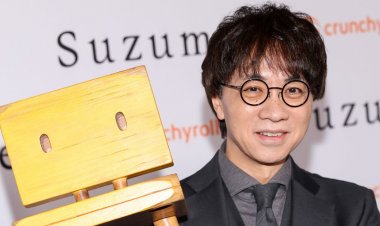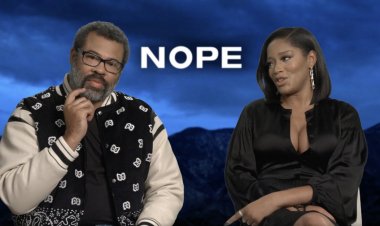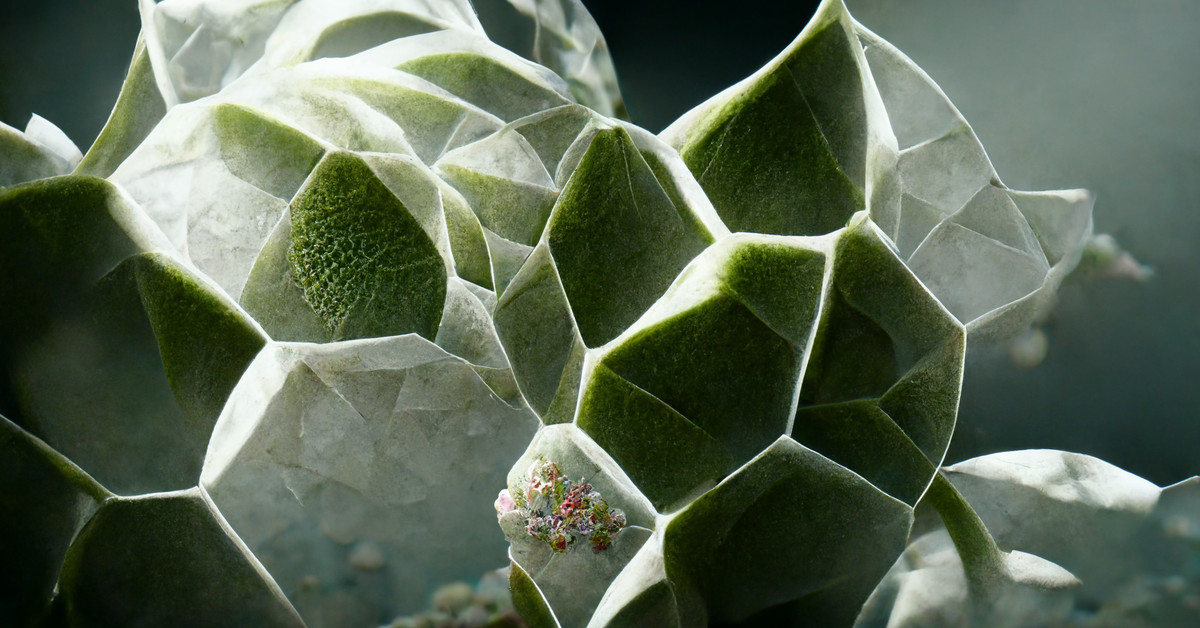Avatar’s Paul Sun-Hyung Lee wants to geek out with the fans of the future
Image: Cath Virginia / The Verge | Photo by Getty Images As Paul Sun-Hyung Lee sees it, truly loving a genre franchise means wanting to share it and pass it along to the next generation of fans. Paul Sun-Hyung Lee was already a huge Star Wars nerd long before he played captain Carson Teva in The Mandalorian, The Book of Boba Fett, and Ahsoka. But portraying Teva took things to the next level and put him in a position to share his passion for sci-fi with other fans in a way that he could only dream of growing up as a Korean-Canadian kid obsessed with Return of the Jedi. Lee spent a lot of time in front of the television in his formative years, and while he couldn’t always see people who looked like him and his family, he could lose himself in the fantastical worlds of films like Ghostbusters and Back to the Future. Characters like Carson Teva have been instrumental in making Star Wars — once an overwhelmingly white film franchise — feel more representative of its massive, multicultural fan base. It’s not lost on Lee how much it would have meant for him to regularly see Asian actors portraying dynamic, multifaceted people on-screen, which is part of why he jumped at the opportunity to join Netflix’s new live-action Avatar: The Last Airbender adaptation. When I sat down with Lee recently to talk about his turn as Avatar’s Iroh, he told me that as excited as he was to land the role, it also came with a feeling of responsibility both to fans and to his fellow cast members — many of whom are much younger, up-and-coming actors — because of how special an experience they were about to embark upon. You can see some of that sense of duty on-screen in the quiet intensity of Lee’s Iroh, a flamethrowing warrior turned pacifist, who is one of the many people searching for the long-lost Avatar. But Lee explained that he wouldn’t have been able to deliver such a powerful performance were it not for his co-stars and their willingness to take some of his wisdom to heart. This conversation has been edited and condensed for clarity. Image: Netflix Dallas Liu as Prince Zuko and Paul Sun-Hyung Lee as Iroh. I was chatting with Dallas Liu a few weeks ago, and he was telling me about how powerful a learning experience it was to work with you both in terms of being scene partners but also your sharing advice about leadership, which really stuck with me. As an actor who’s spent so much time talking about the importance of seeing other Asian actors in leading roles, what was it like for you to step into this kind of mentorship role for the next generation of young, up-and-coming Asian performers? It’s a humbling and tremendous honor, but it’s also something that I take quite seriously because I never really had those mentors in my career as I was moving up. I had a few in the theater world, but there were very few in film and TV who I could lean on or ask for advice. I think when one of us wins, we should all win, and so I’m doing my part to ensure that I can pass along whatever experience or knowledge that I have to the next generation to help them on their journey — to help them feel less isolated but also to give them that advice on how to carry yourself as a professional on set. Dallas — it’s not like he was running around preening or something. He was so dedicated and so passionate about the work. But the one thing that I wanted to let him know was that we were there together. Like, it’s not just you on an island, acting by yourself. I’m here to help and support you. You’re here to do the same thing for me. We are in this scene together, and so it makes sense if we work together. He’s spoken about this, but he had it in his mind that he kind of wanted to isolate and give himself that sense of Prince Zuko being alone. And I thought, “Well, that’s interesting, and you can absolutely play with that idea.” But the reality is, we’re going to be spending months together, and I find that the balance between work and personal life is good to a certain extent. But at the same time, you’re going to make yourself miserable the entire shoot if you isolate yourself from everybody else because you think it’s going to enhance your work. Everybody wins when the communication and support are clear and when we’re on the same page. My job as an older actor is to share with him as much of the knowledge that I’ve been able to accrue from my experiences that he wants. I’m not going to try to shove it down his throat and say, “Come over here and let me teach you a lesson.” It was always little gentle things, and it really translated to the relationship between our Zuko and Iroh. A lot of people came to the new Avatar with an idea of who these characters are because of the old show, but I wanted to hear from you: Who is your Iroh? What ideas about his interior self did you want viewers thinking about as they watched your performance in season 1? I’ve been lucky enough to play characters for whom fam
/cdn.vox-cdn.com/uploads/chorus_asset/file/25367207/247072__Paul_Sun_Hyung_Lee_CVirginia_A.jpg)

As Paul Sun-Hyung Lee sees it, truly loving a genre franchise means wanting to share it and pass it along to the next generation of fans.
Paul Sun-Hyung Lee was already a huge Star Wars nerd long before he played captain Carson Teva in The Mandalorian, The Book of Boba Fett, and Ahsoka. But portraying Teva took things to the next level and put him in a position to share his passion for sci-fi with other fans in a way that he could only dream of growing up as a Korean-Canadian kid obsessed with Return of the Jedi.
Lee spent a lot of time in front of the television in his formative years, and while he couldn’t always see people who looked like him and his family, he could lose himself in the fantastical worlds of films like Ghostbusters and Back to the Future. Characters like Carson Teva have been instrumental in making Star Wars — once an overwhelmingly white film franchise — feel more representative of its massive, multicultural fan base. It’s not lost on Lee how much it would have meant for him to regularly see Asian actors portraying dynamic, multifaceted people on-screen, which is part of why he jumped at the opportunity to join Netflix’s new live-action Avatar: The Last Airbender adaptation.
When I sat down with Lee recently to talk about his turn as Avatar’s Iroh, he told me that as excited as he was to land the role, it also came with a feeling of responsibility both to fans and to his fellow cast members — many of whom are much younger, up-and-coming actors — because of how special an experience they were about to embark upon. You can see some of that sense of duty on-screen in the quiet intensity of Lee’s Iroh, a flamethrowing warrior turned pacifist, who is one of the many people searching for the long-lost Avatar. But Lee explained that he wouldn’t have been able to deliver such a powerful performance were it not for his co-stars and their willingness to take some of his wisdom to heart.
This conversation has been edited and condensed for clarity.
/cdn.vox-cdn.com/uploads/chorus_asset/file/25370719/Avatar__The_Last_Airbender_n_S1_00_22_32_08.jpg) Image: Netflix
Image: Netflix
I was chatting with Dallas Liu a few weeks ago, and he was telling me about how powerful a learning experience it was to work with you both in terms of being scene partners but also your sharing advice about leadership, which really stuck with me. As an actor who’s spent so much time talking about the importance of seeing other Asian actors in leading roles, what was it like for you to step into this kind of mentorship role for the next generation of young, up-and-coming Asian performers?
It’s a humbling and tremendous honor, but it’s also something that I take quite seriously because I never really had those mentors in my career as I was moving up. I had a few in the theater world, but there were very few in film and TV who I could lean on or ask for advice. I think when one of us wins, we should all win, and so I’m doing my part to ensure that I can pass along whatever experience or knowledge that I have to the next generation to help them on their journey — to help them feel less isolated but also to give them that advice on how to carry yourself as a professional on set.
Dallas — it’s not like he was running around preening or something. He was so dedicated and so passionate about the work. But the one thing that I wanted to let him know was that we were there together. Like, it’s not just you on an island, acting by yourself. I’m here to help and support you. You’re here to do the same thing for me. We are in this scene together, and so it makes sense if we work together. He’s spoken about this, but he had it in his mind that he kind of wanted to isolate and give himself that sense of Prince Zuko being alone. And I thought, “Well, that’s interesting, and you can absolutely play with that idea.” But the reality is, we’re going to be spending months together, and I find that the balance between work and personal life is good to a certain extent.
But at the same time, you’re going to make yourself miserable the entire shoot if you isolate yourself from everybody else because you think it’s going to enhance your work. Everybody wins when the communication and support are clear and when we’re on the same page. My job as an older actor is to share with him as much of the knowledge that I’ve been able to accrue from my experiences that he wants. I’m not going to try to shove it down his throat and say, “Come over here and let me teach you a lesson.” It was always little gentle things, and it really translated to the relationship between our Zuko and Iroh.
A lot of people came to the new Avatar with an idea of who these characters are because of the old show, but I wanted to hear from you: Who is your Iroh? What ideas about his interior self did you want viewers thinking about as they watched your performance in season 1?
I’ve been lucky enough to play characters for whom family is very, very important — Mr. Kim from Kim’s Convenience is one of the bigger examples. And there were elements of Iroh that I could really easily relate to, just as a father figure. I had to do a lot of growing up when I had my sons, and I think the same is true of Iroh. I wanted to tap into that whole idea of your perspective shifting because of your life changing in such a significant way. Where you think you want one thing, and then something happens in your life that turns you on your head, and you realize that the things that you’ve been chasing — the things that you’ve been told that you were going to do — suddenly aren’t nearly as important as you thought they were.
That sort of transformation is what drew me to Iroh. He’s a man who was groomed to be the next Fire Lord and was usurped in many ways by his power-hungry younger brother, but he also suffered a tremendous loss with his son Lu Ten being killed in battle. Losing Lu Ten really reframes who he is and what he wants in life. And Iroh sees a lot of himself in Zuko. He sees compassion, love, and a tremendous depth of feeling but also the vestiges of his own son and someone who could use the kind of guidance that he needed when he was at that age.
/cdn.vox-cdn.com/uploads/chorus_asset/file/25370720/AVTR_Unit_00671R.jpg) Image: Robert Falconer / Netflix
Image: Robert Falconer / Netflix
Were there any internal discussions between you, Dallas, and [showrunner] Albert [Kim] about whether showing audiences this deeper dynamic between Zuko and Iroh early in the show might rub people the wrong way?
Zuko and Iroh’s relationship is really one of growth and progression. In the original Book One, you don’t see a lot of this information about the two of them early on. You’re supposed to see Zuko as this angry guy chasing team Avatar and Iroh as this kind of weird guy who’s always joking. But you don’t know why this old guy is so devoted to his prince. You don’t find that out until Book Two, when the depth really drops in, and that’s why it was such a treat to get to do this in our season 1 by creating a scene that didn’t exist in the animated series. Cerebrally, people knew and spoke about it — that bond between Iroh and Zuko. But its origins had never been explored on-screen that way, and I think we benefited tremendously from that because we were giving viewers something new to watch that they couldn’t quite compare to something else.
We’re living through this really toxic, weird time where the very concepts of diversity and cultural specificity are being treated like they’re antithetical to the creation of good art, whether it’s TV shows, movies, or games. I don’t really want to ask you why that’s wrong but, rather, how has Hollywood’s push for diversity — and it’s a relatively small push in the grand scheme of things — enriched the entertainment industry?
I’m biased because I’ve directly benefited from it, but I have always believed that representation absolutely does matter. My parents were immigrants who had to work constantly, and so the television was my babysitter. And when I’m watching TV and movies and the only people I see who look like me or my family are outsiders or objects of ridicule, it teaches you at a very young age that you and your stories don’t matter — that your family is weird, and it makes you not want to be like them. For a chunk of my youth, I grew up not wanting to be Korean. I didn’t want to speak Korean or eat Korean food. I just wanted to fit in and have lunch like everybody else. I just wanted to belong. The unfortunate tail end of that is that I missed out on a lot of things because of those feelings. I don’t speak Korean anymore, and losing the ability to speak my native tongue is one of my biggest regrets because that connection becomes more and more of a factor as my parents get older.
I regret not embracing my heritage and losing out on the richness of all that it could have afforded me. Now, if you translate that to nowadays, I think having diversity and inclusivity and proper representation in film and TV has been nothing but a boon because, if nothing else, BIPOC artists on-screen and off are finally being given the opportunities to tell and be a part of their own stories. You’re seeing fresh perspectives, hearing new voices, and meeting new talent. And if you’re telling new narratives instead of getting the same meal again and again and again, that’s a win for audiences because you can love steak and potatoes, but there are a thousand different ways you can prepare them.
/cdn.vox-cdn.com/uploads/chorus_asset/file/25370756/the_mandalorian___carson_teva.jpg) Image: Disney Plus
Image: Disney Plus
With The Mandalorian, The Book of Boba Fett, Ahsoka, and now Avatar, you’ve become a part of these huge franchises when they’re really working to grab new generations of fans for whom these shows are going to be foundational pieces of the canon. This is sort of a callback to my earlier question about mentorship, but what responsibility do you think older fans have in terms of welcoming newcomers into the fold?
I think it’s important for them to realize that, years ago, when they started, they were in the same position. It’s important to be kind, gentle, and to both listen to and feed into that excitement by giving newcomers — if they want it — a little bit of background. Nerding out with somebody over something that they’re totally into but also new to is my favorite part of fandoms. Like people discovering the Beatles for the first time, and you can just suggest, “Oh, if you think this is out-there, you should listen to some of the stuff from when they were indie, and then when they took a turn.” That’s the joy of all fandoms, really.
But it’s also incumbent for us older fans to remember how that time in a person’s relationship to art that is new to them is precious, and we owe it to others not to be gatekeepers or to be judgmentally harping on about, “Well, back in my day, we had real TV, music, and movies.” This is a different era. I had never really considered that, but you’re right — for a lot of people, shows like The Mandalorian will be their core memories of Star Wars, not the original trilogy. They grew up watching Grogu, and he’ll be their anchoring point. There’s joy there, and we older fans have a responsibility to remember that because, more than anything else, true fandom is sharing your love, not judging. It’s about expanding, growing, and learning. And if you’re not enjoying it, why are you a fan? I don’t see how you can call yourself a fan if you’re focused on being miserly just hoarding every scrap of knowledge, because then, when you die, it dies. You want this to go on, right?
It doesn’t happen in the original cartoon until season 3, but in theory, would you get — forgive me — jacked to give us prison workout Iroh?
Some of the first things I saw were people posting the GIFs of Iroh doing the one-arm push-ups and pull-ups while eating prison food. The transformation is just... he doesn’t even look human anymore. I’m like, “Okay, how does he do that on prison food, first of all?” We haven’t really discussed that with production yet. Daniel Dae Kim seems to think that I could do it, and he had to get cut in season 1 for the Agni Kai scene. But that’s DDK; he’s a fine specimen to begin with, so I joke that he probably just had to do three push-ups, and he was ready. Dallas, too, he’s in his prime and has been doing martial arts since he was four years old. But I’m in my 50s. I’ve had a very comfortable life.
I hurt my ribs from sneezing once, so I’ve been joking that, with all of the advancements in VFX and CGI, I can wear a green T-shirt. If he’s not running around for the whole season like that, muscle shirts are acceptable as well. We’ve got a fantastic costume department. Or they could do what they did with Ryan Reynolds in Free Guy and just sort of digitally paste my face onto some really jacked bro dude. But whatever comes down the pipe, I’m really looking forward to the challenge.


















/cdn.vox-cdn.com/uploads/chorus_asset/file/24453129/Hello_Tomorrow_Photo_010305.jpg)







